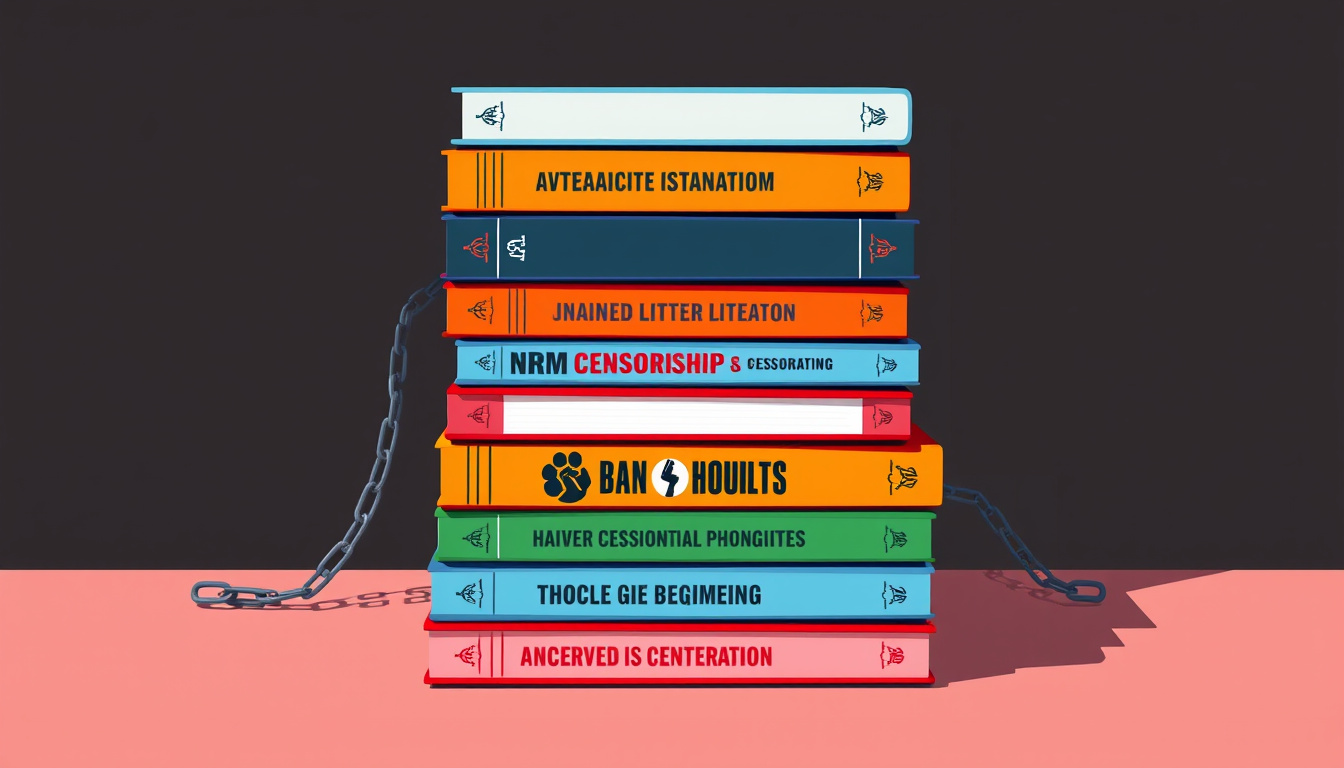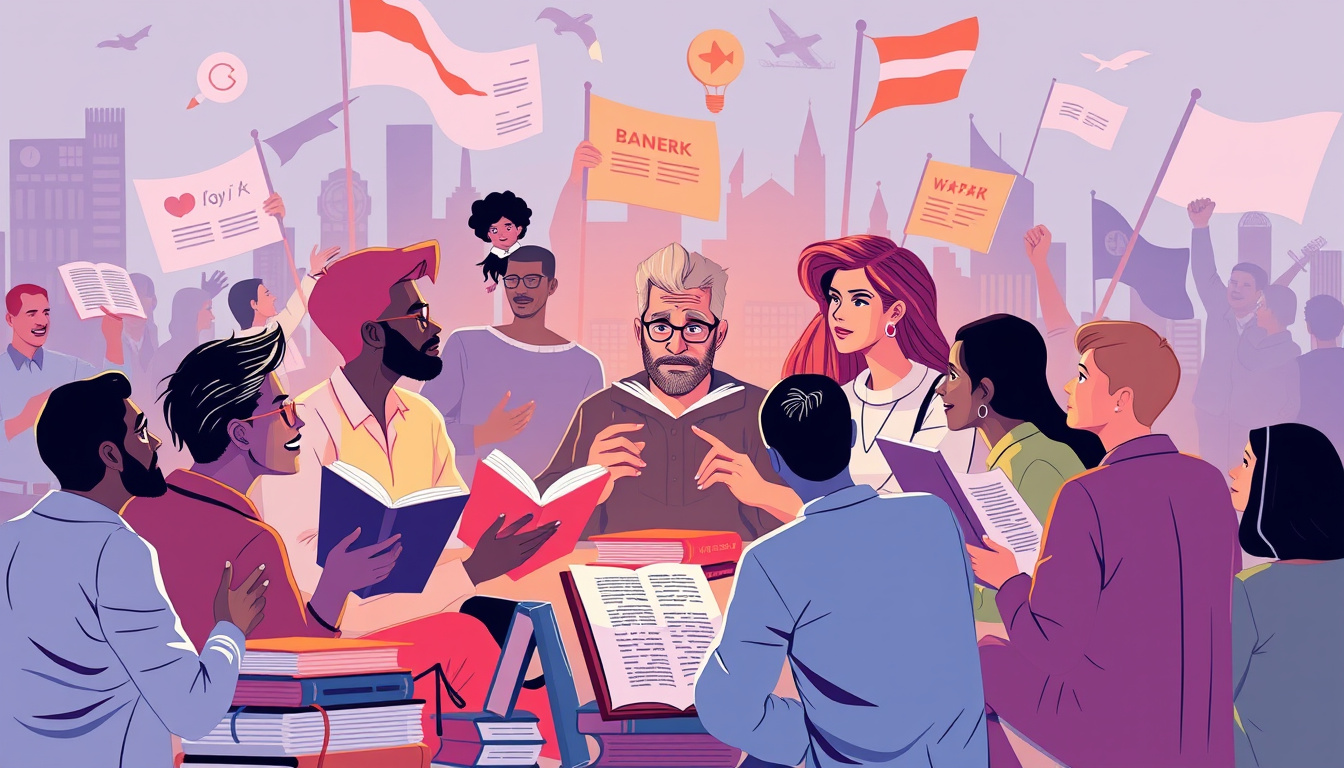Physical Address
304 North Cardinal St.
Dorchester Center, MA 02124
Physical Address
304 North Cardinal St.
Dorchester Center, MA 02124

Throughout history, literature has often run into obstacles, whether due to societal norms, political climates, or cultural sensitivities. The phenomenon of banning books is a striking example of how powerful literature can be, influencing thoughts and provoking discussion. Below is a curated list of ten significant books that have faced challenges and censorship, illustrating not only their impact but also the reasons behind their controversies.

Often regarded as a masterpiece of American literature, this novel deals with profound themes such as racism and moral growth. Despite its critical acclaim, it has consistently faced bans, particularly in school systems, due to its use of racial slurs and its candid discussion of racial injustices. The book’s exploration of these themes remains wholly relevant, reflecting ongoing conversations about race in America.
Orwell’s dystopian classic has been challenged for its political themes and explicit content. The book critiques totalitarianism and explores the perils of suppressing free speech. Its chilling portrayal of a surveillance state has led to its inclusion in radical discussions, making it a target for censorship in various educational settings.
A quintessential coming-of-age novel, Salinger’s work has faced numerous challenges due to its use of profanity, sexual themes, and rebellion against societal norms. Critics argue that it reflects teenage angst and disillusionment, and its candid exploration of adolescence remains a crucial reason for its continued relevance, despite objections to its content.
Similar to "1984," Huxley’s work presents a critical look at a future society manipulated by technology and consumerism. It has been banned for its sexual content and perceived promotion of promiscuity. The debate around this novel continues to open dialogues about the implications of societal control and technological advancements.
This classic American novel has faced numerous challenges, primarily due to its portrayal of race and the frequent use of racial slurs. Critics argue that while it highlights the moral dilemmas surrounding slavery, this very depiction makes it the target of censorship. The discussions surrounding the book reveal the complexities of interpreting historical literature in modern contexts.
This contemporary novel resonates with young adults facing mental health issues, sexuality, and identity. It has faced bans and challenges due to its frank discussions about suicide, drug use, and sexual orientation. Banning this novel can inadvertently silence crucial conversations about mental health and acceptance among youth.
Walker’s Pulitzer Prize-winning novel tackles the subjects of race, gender, and violence. It has frequently been challenged for its explicit content, including discussions of rape and sexual relationships. The book’s substantial themes of empowerment and resilience continue to inspire discussions about women’s rights and racial equality.
Morrison’s debut novel, which deals with themes of beauty, race, and childhood trauma, has faced challenges due to its graphic depictions of violence and sexual abuse. The book is an important exploration of the societal standards of beauty and the impacts of racism, making its challenges emblematic of broader societal issues.
While commercial success marked this title, it has encountered significant challenges due to its explicit sexual content and perceived portrayal of unhealthy relationships. The debate around its inclusion in libraries underscores the ongoing discourse about sexual literacy and the representation of sexuality in literature.
Atwood’s dystopian novel has seen a resurgence in popularity, especially in the wake of contemporary political discussions regarding women’s rights. Challenges to its content stem from its themes of sexual oppression and totalitarianism. This relevance to current events has made it a critical read, despite facing attempts at censorship.
The books listed above not only entertain but also invite readers to engage in critical discussions surrounding societal norms, politics, and human rights. The challenges they face represent an ongoing struggle for freedom of expression in literature. By examining these works, we gain insight into the power of words and the importance of nurturing open dialogues in communities.
Understanding these narratives invites readers to challenge censorship and appreciate the rich, albeit turbulent, history of literary works that confront difficult truths about humanity.
If you enjoyed this post and you’re craving more stories that sizzle, check out my books at Arizona-Jewel. From slow burns to explosive encounters, there’s a story waiting to sweep you away.